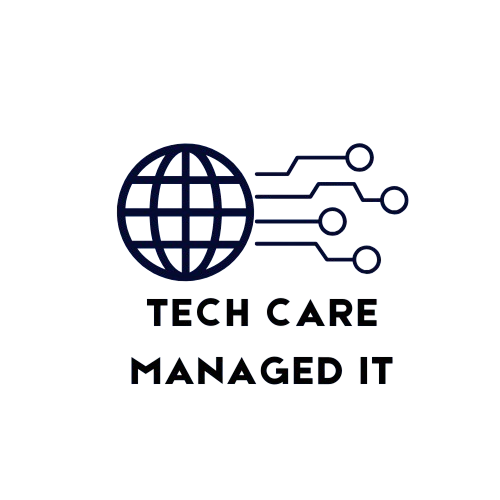Understanding IT Staff Augmentation in Germany
IT staff augmentation Germany has become a vital strategy for organizations that need skilled professionals quickly without going through the long process of permanent hiring. This model allows companies to extend their teams with external experts who integrate seamlessly with in-house employees. Unlike traditional outsourcing, where entire projects are handed off to third parties, staff augmentation enables businesses to maintain control while benefiting from additional technical expertise. Companies in Germany are adopting this model because it provides flexibility, efficiency, and access to global talent. As digital transformation accelerates across industries, the demand for specialized skills is outpacing the supply of local professionals. IT staff augmentation bridges this gap by connecting businesses with highly qualified experts on a temporary or long-term basis. This approach is especially beneficial for projects requiring niche skills that may not be readily available in the local labor market.
Why Germany is a Growing Hub for IT Staff Augmentation
Germany has established itself as one of Europe’s strongest economies and a leader in digital innovation, making it a hotspot for IT staff augmentation. The country’s rapid technological advancements in fields such as artificial intelligence, Industry 4.0, and cloud infrastructure have created a pressing need for tech professionals. However, the supply of qualified talent in Germany has not kept pace with this growing demand. For example, software engineers, cybersecurity experts, and data scientists are in short supply, leaving businesses searching for alternative solutions. IT staff augmentation Germany offers companies the ability to fill these gaps quickly with international specialists who possess advanced expertise. Moreover, Germany’s strong regulatory environment and adherence to GDPR ensure that augmented staff operate under strict compliance standards. Businesses across finance, manufacturing, automotive, and healthcare are leveraging this model to keep up with fast-changing technological requirements. As the digital economy grows, Germany’s role as a hub for flexible IT staffing solutions will only continue to expand.
Benefits of IT Staff Augmentation in Germany
One of the key benefits of IT staff augmentation Germany is flexibility. Businesses can scale their teams up or down depending on project demands without committing to long-term employment contracts. This is particularly advantageous for organizations that face seasonal projects or sudden surges in workload. Another advantage is cost-efficiency, as companies save money on recruitment, onboarding, and employee benefits while still accessing highly skilled professionals. Staff augmentation also provides faster recruitment cycles, enabling firms to respond quickly to urgent project deadlines. Another benefit lies in gaining access to niche expertise, such as AI engineering or DevOps, which may not be available locally. By focusing on core business operations, managers can rely on augmented staff to handle specialized technical tasks. Finally, the model fosters a balance between operational agility and strategic growth, giving German companies a competitive edge in global markets. With these benefits, it is clear why more businesses are adopting IT staff augmentation Germany to strengthen their digital capabilities.
Common IT Roles Augmented in Germany
Organizations in Germany use IT staff augmentation to source a wide variety of roles critical to technology projects. Software developers and engineers remain the most requested professionals, with skills ranging from Java and Python to PHP and .NET. Companies also frequently bring in cloud specialists and DevOps engineers to optimize infrastructure and ensure smooth deployment cycles. Cybersecurity experts are another highly sought-after group due to rising threats in digital environments and the strict compliance requirements in Germany. Data analysts and artificial intelligence specialists are equally important as firms increasingly rely on data-driven decision-making and automation. Beyond technical roles, IT project managers and quality assurance engineers are often integrated into teams to keep projects on track and ensure deliverables meet high standards. By utilizing IT staff augmentation Germany, businesses gain access to these roles more quickly than through traditional hiring, helping them maintain momentum in a competitive digital landscape.
How Businesses in Germany Can Leverage IT Staff Augmentation
Organizations in Germany can maximize the value of IT staff augmentation by following structured steps. The first step is identifying when additional talent is necessary, such as during peak workloads, when launching new projects, or when specialized expertise is missing internally. Next, companies should carefully evaluate potential IT staff augmentation providers in Germany, ensuring they offer talent with relevant technical experience and cultural compatibility. Legal and compliance factors also play a vital role, as businesses must adhere to German labor laws and GDPR regulations. Once a provider is selected, seamless integration with existing teams becomes essential, which requires strong communication tools and well-defined workflows. Companies should also establish clear expectations regarding project goals, timelines, and responsibilities to ensure augmented staff contribute effectively. Continuous monitoring and feedback can further optimize collaboration and productivity. By approaching IT staff augmentation Germany strategically, businesses can strengthen their workforce and achieve project success while maintaining control.
Challenges and How to Overcome Them
While IT staff augmentation Germany offers numerous advantages, there are challenges businesses must address to maximize success. One common concern is potential cultural and communication barriers, especially when working with international professionals. Companies can overcome this by providing cross-cultural training and ensuring English proficiency across teams. Time zone differences may also present obstacles, though these can be managed by setting overlapping working hours and leveraging digital collaboration tools. Security and confidentiality are another major consideration, particularly in industries dealing with sensitive data. Organizations should enforce strict cybersecurity policies and ensure all augmented staff adhere to compliance regulations. Cost management is another area where challenges arise, as businesses must balance the expense of hiring specialists with project budgets. Finally, integration issues can occur if augmented staff are not properly aligned with internal processes. To address this, companies should foster team bonding, promote transparent communication, and assign clear roles from the outset.
The Future of IT Staff Augmentation in Germany
The future of IT staff augmentation Germany looks promising as businesses increasingly embrace flexible workforce models. Remote and hybrid work arrangements have become standard, allowing companies to tap into global talent pools more effectively. Emerging technologies such as artificial intelligence, blockchain, and advanced cybersecurity will drive demand for highly specialized skills that may not be readily available locally. Companies will rely on staff augmentation to secure these experts quickly and remain competitive. As the digital economy evolves, German businesses will continue to seek innovative ways to manage staffing needs while controlling costs. This approach will also help mitigate the challenges of the national tech talent shortage, ensuring projects are completed on time and with high-quality outcomes. Furthermore, IT staff augmentation is expected to become an integral part of long-term workforce strategies rather than just a temporary solution. Businesses that adopt this model early will gain a significant advantage in adapting to future technological shifts.
Frequently Asked Questions (FAQ)
Q1: What is the difference between IT staff augmentation and outsourcing in Germany?
Outsourcing typically involves transferring entire projects to third-party vendors, while IT staff augmentation Germany allows businesses to retain control and simply extend their teams with external experts.
Q2: How much does IT staff augmentation cost in Germany?
Costs vary depending on the role, skill set, and project duration. However, it is often more cost-efficient than permanent hiring due to reduced overhead and recruitment expenses.
Q3: Which industries in Germany use IT staff augmentation the most?
Industries such as finance, manufacturing, automotive, and healthcare rely heavily on IT staff augmentation due to their constant need for digital transformation and advanced technologies.
Q4: Is IT staff augmentation legal and compliant with German labor laws?
Yes, IT staff augmentation is legal as long as businesses and providers comply with German employment regulations and data protection laws like GDPR.
Q5: How can companies ensure smooth collaboration between in-house and augmented teams?
By fostering open communication, setting clear expectations, and using collaboration tools, businesses can create strong synergy between internal employees and augmented professionals.









